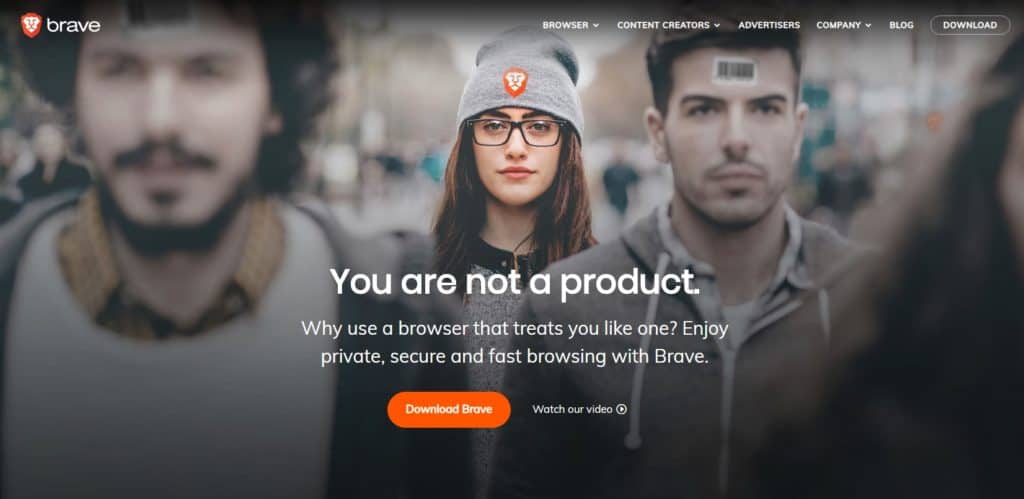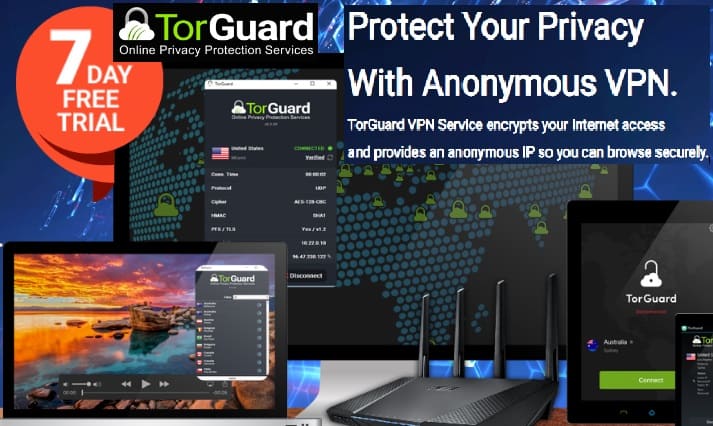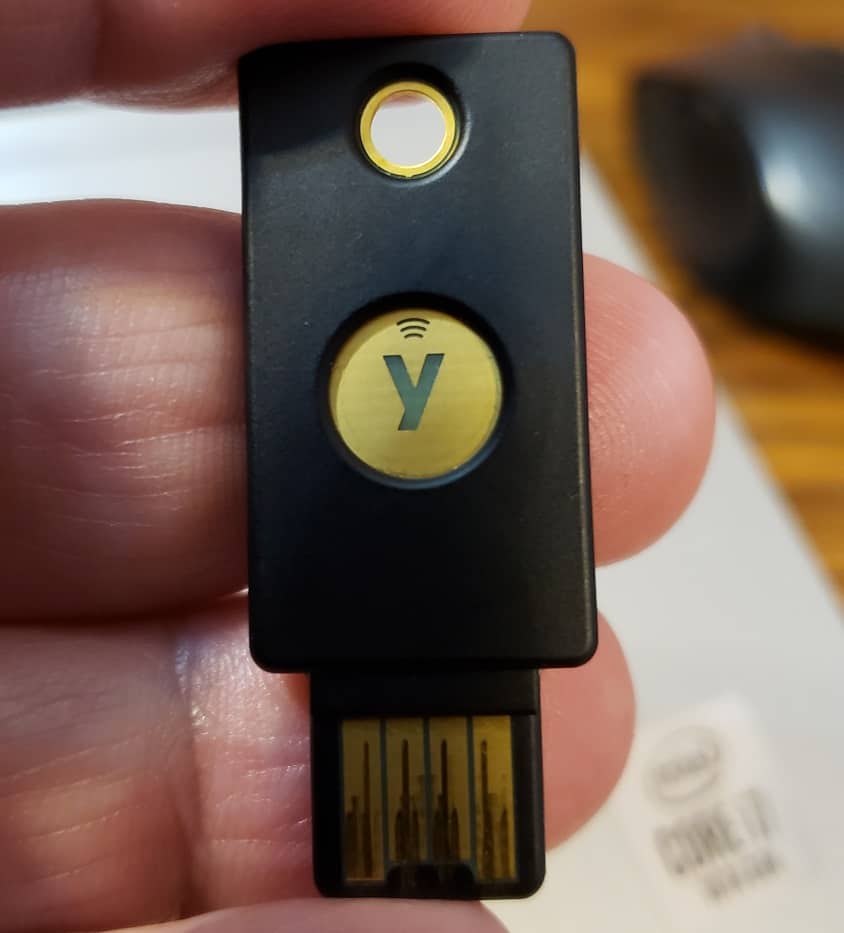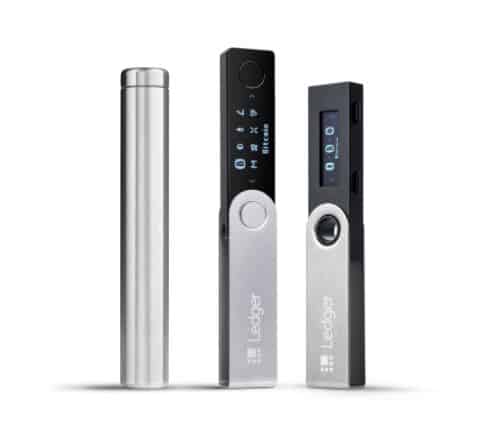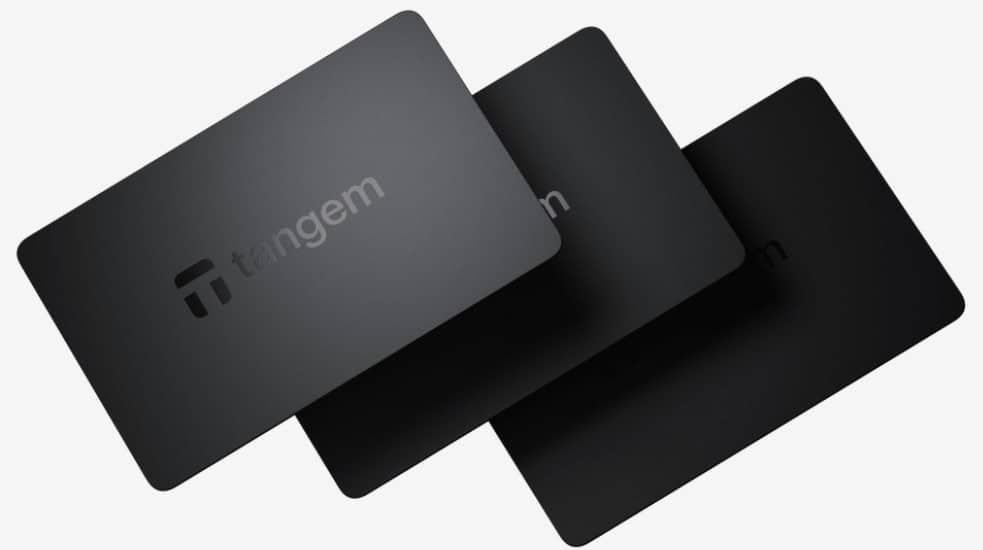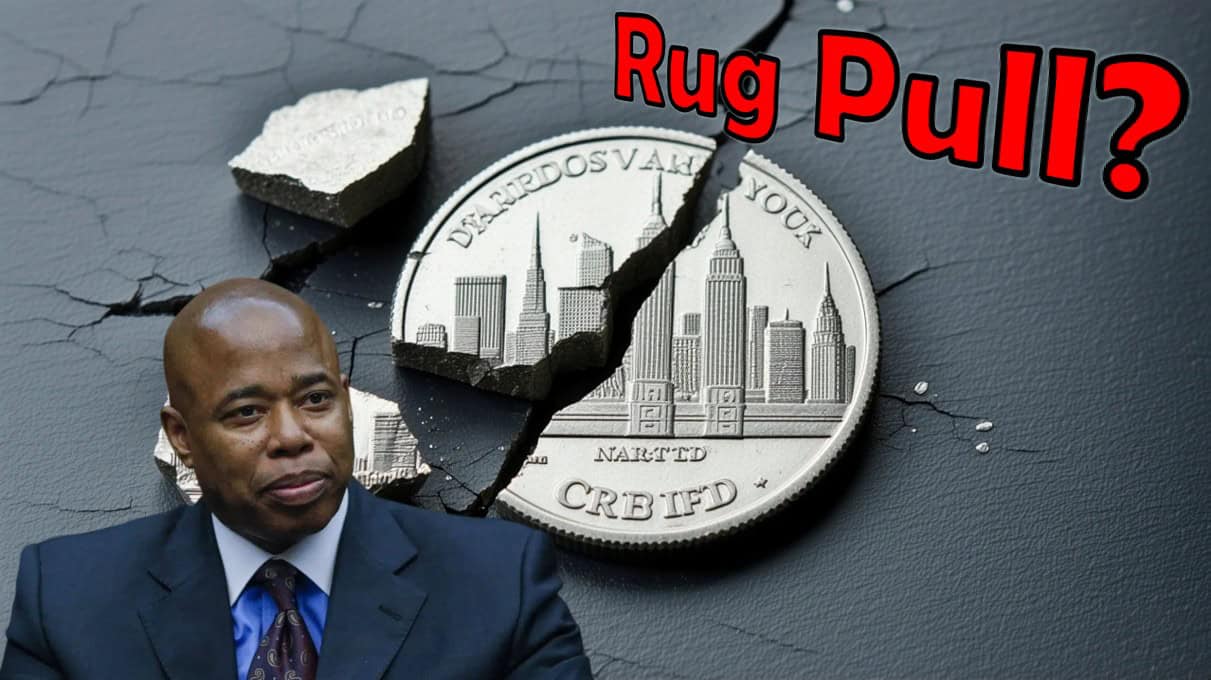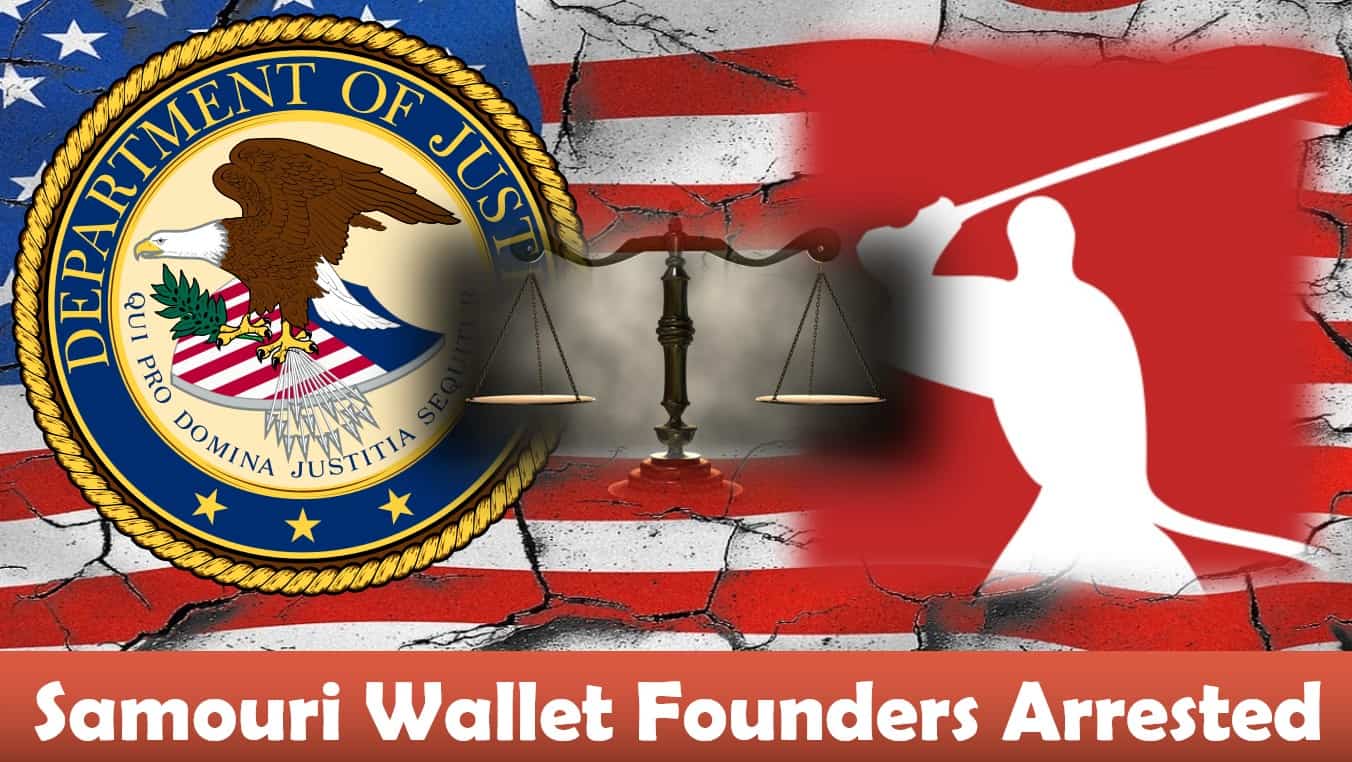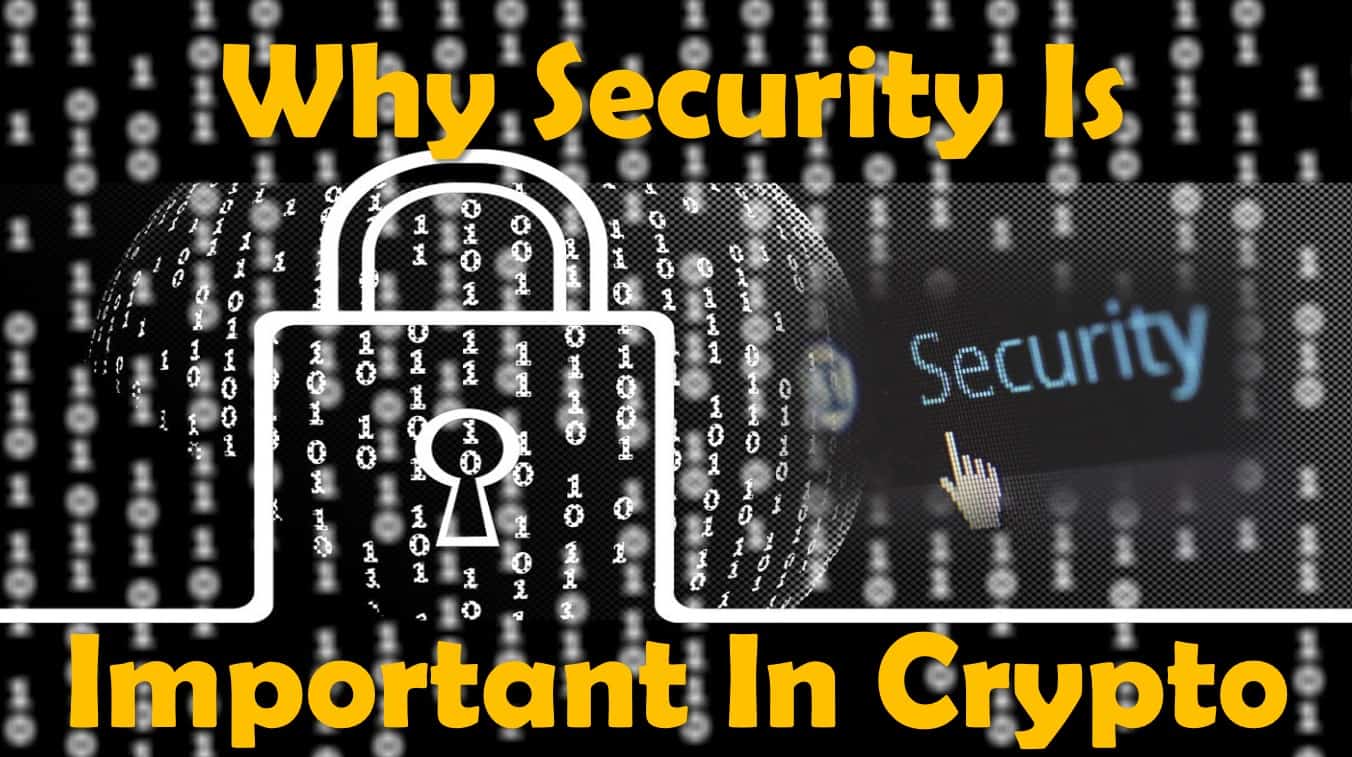
Why Online Security Is Important With Cryptocurrency
Last updated on May 19th, 2025 at 01:25 pm
We all invest in cryptocurrency for differing reasons. Regardless what your ultimate goal is for the investments you make in crypto, there is one constant for everyone, you must keep your crypto investments safe.
Security is important when transacting with cryptocurrency because having inadequate security protocols in place could result in the permanent loss of crypto assets. Utilizing a layered security approach is best for protecting cryptocurrency from hackers and scammers.
The fact that cryptocurrencies, such as Bitcoin, have greatly appreciated in value since their inception, makes them prime targets for hackers and thieves. The variation in attack vectors continues to increase, so having a dedicated security strategy is important.
As we move on, we’ll look at some reasons you likely invested in crypto, different ways that thieves try to steal that crypto and steps you can take to help prevent that from happening.
Table of Contents:
- Understanding Your Why and Your Responsibility
- How Your Crypto Is At Risk
- How Can I Improve My Crypto Security?
- Security Task & Recommendations
- Protect Your Private Keys
- Use A Secure Web Browser
- Bookmark Your Websites
- Use Strong Passwords
- Use Encrypted Email
- Use a VPN
- Don’t Use Public WiFi
- Use Two Factor Authentication
- 2FA Exploit
- Use a Security Key
- Use Antivirus Software
- Keep Operating Systems Updated
- Secure Crypto In a Hardware Wallet
- Buy Tangem Here
- Crypto Security Roundup
- Questions Related To Crypto Security
Understanding Your Why and Your Responsibility
Each of us has a personal reason for investing in cryptocurrency. While I obviously can’t read your mind to find out your why, all I can do is tell you some of my own reasons.
Originally, I started mining Bitcoin as a way to create some additional income. This quickly morphed into a complete immersion into the crypto space.
This immersion led me to a bit of an epiphany… this could change the lives of everyone I know.
Without getting too far down that rabbit hole, I believed that some of the outcomes from investing in cryptocurrency included increased freedom and autonomy, the ability to pass wealth down to my children and grandchildren, being able to help anyone who wanted to listen to do the same and of course, being able to improve my current financial situation.
If you’re interested in learning more about how I started in crypto and how CryptoCoinMindSet came to be, head over to the About Us page.
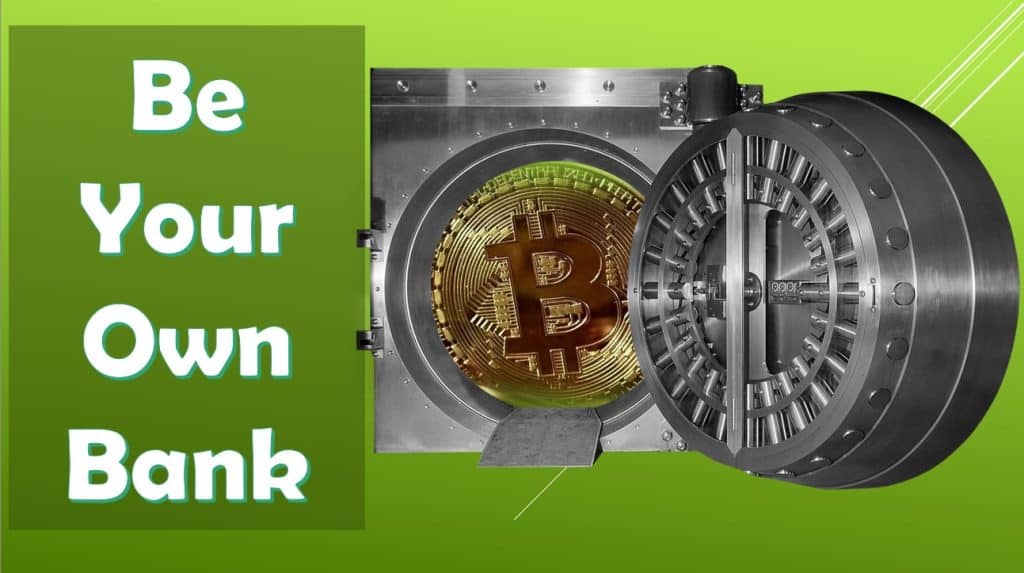
Realizing You Are The Bank
Hopefully at least some of these reasons strike a chord with you. If they do then you already understand why taking the time to protect your current and future investments is critical.
But, no matter why you are here, you need to understand one of the main principles of using cryptocurrency… you are the bank.
That means that you, and you alone are responsible for keeping your crypto safe.
This is why security is so important when transacting in the cryptocurrency space.
Moreover, this is why you need to have a proactive approach to securing yourself and everything you do online. The byproduct of approaching things from this way is that you can protect your crypto assets.
How Your Crypto Is At Risk
Cryptocurrency theft has been around almost as long as Bitcoin itself and these attacks have often garnered the criminals a hefty bounty.
While there have been some successful, yet limited, attacks against a blockchain itself, most attacks focus on other points of failure.
These weak points include cryptocurrency exchanges, bridges between blockchains, crypto wallets and of course, you.
In 2021 alone, cryptocurrency hacks accounted for over $14 Billion in lost crypto.
Courtesy of CNBC
So to combat this, we all need to focus on our online security.
As a matter of fact, online security is so important that I dedicated an entire series of articles to this entire topic. I suggest you read all of those starting here.
You Are The Weakest Link
There are all kinds of risk factors when it comes to cryptocurrency.
These include hackers, scammers, governments and frankly… even you.
Right now you’re probably looking at that last sentence and thinking… I get the first 2, maybe even the government, but me?
I mean no insult to you… honestly, I include myself as well, because believe me when I tell you…
I have made some mistakes with crypto!
Honestly, I’m embarrassed to tell you how much crypto I’ve lost due to my own mistakes.
My hope is, that if you understand that you are in control of your crypto, you can avoid the same mistakes I’ve made.
As was mentioned earlier, in cryptocurrency, you are the bank. So, you have to begin by securing your private keys.
Your private keys are, in essence, your crypto assets on the blockchain. So, if you don’t have control of them, then you don’t have control of your crypto.
This is a common point of failure with users of cryptocurrency. Many users either fail to properly save their seed/recovery phrase or they lose it over time.
Either way, the result is the same, without it, you can’t access your crypto.
If this happens, there is no one who can access the blockchain to give you your crypto back.
However, by putting some security protocols in place, a set of best practices if you will, you can protect your cryptocurrency. These layers of security are outlined below, but if you want to jump there now, you can do that here.
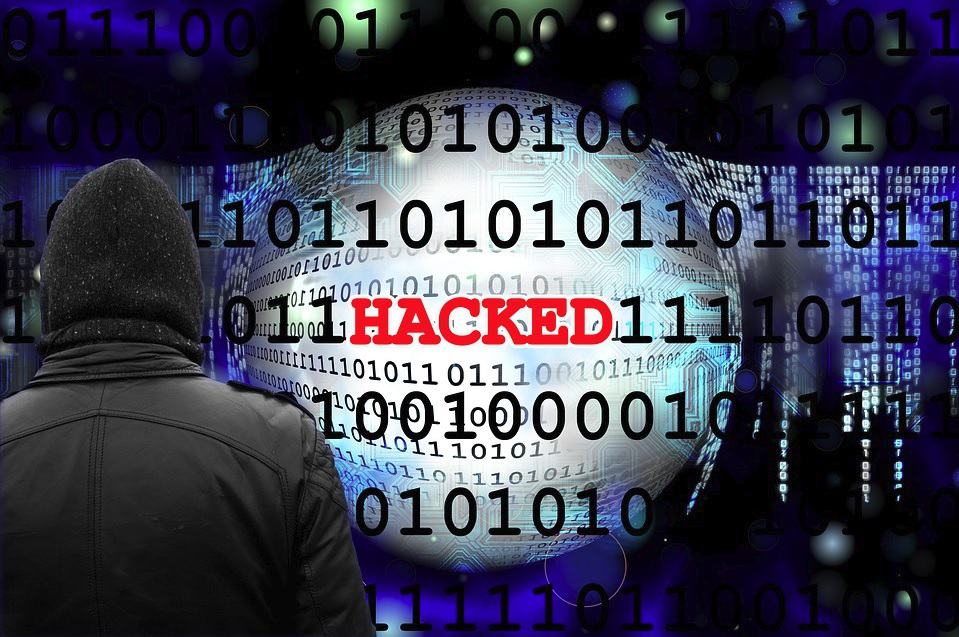
Hackers, Scammers and Thieves
Assuming you have good methods for securing your private keys, the next most likely attack is from hackers and scammers.
These thieves use many different methods to gain access to your cryptocurrency.
Some of these attacks include phishing attacks, ransomware, malware and viruses, fake or infected wallets, 2FA exploits and cryptojacking.
However, losing access to your crypto doesn’t mean you’ve lost it to some unknown hacker.
If your cryptocurrency is stored in a custodial wallet, then you are not in control of the private keys.
For a more in-depth look at how you can loose your cryptocurrency and learn if it’s possible to recover it, you must read the article I wrote here!
Remember, if you don’t have control of your private keys, you don’t have control of your crypto.
So, if you leave your money on a centralized cryptocurrency exchange for example, they control your money, not you.
Whomever controls your private keys can take control of your crypto assets at any time and there is nothing you can do about it!
All of these things may make you feel a pit in the bottom of your stomach.
But understanding more about how these losses occur, and what you can do to prevent them, will help reduce your anxiety and show you a path to protecting your crypto.
How Can I Improve My Crypto Security?
Taking a layered approach to your security online can go a long way to protecting your cryptocurrency assets. These layered, preventative measures, can help you to detect, deter and deny a hacker or scammer access to crypto.
Boosting your cryptocurrency security is possible by protecting your private keys, backing up your crypto wallet, using secure browsers, strong passwords, encrypted email, a VPN, 2 factor or multifactor authentication, virus protection and a hardware wallet.
After reading all of that you might be a bit overwhelmed. But, let’s break it down a bit… and maybe even throw in a fun, helpful analogy.
How about we look at this idea of layered security through the eyes of a child?
Children often read stories or watch shows where there is a king and he lives in a castle. The king does all kinds of things to make sure that the castle is safe.
What are some of the things the king might do to protect the castle?
Some of the fortifications the king might employ include putting up barricades, digging a moat, building high walls, building a drawbridge and of course, having soldiers to defend the castle.
That was a fun departure from crypto wasn’t it?
Let’s take a look at how we can use this analogy to create these protective layers around your crypto without completely upending your daily routine.
Security Task & Recommendations
| Security Task | Device | Recommendation |
|---|---|---|
| Secure Private Keys & Passwords | All | Fire-Proof Safe |
| Use Secure Web Browser | All | Brave Browser |
| Create & Manage Strong Password | All | NordPass |
| Use Encrypted Email | All | ProtonMail |
| Use a VPN | Computer & Phone | Torguard |
| Use 2 FA | Websites & Platforms | Google Authenticator |
| Use a Security Key | Computers & Phone | Yubikey |
| Use Antivirus Software | Computer & Phone | Webroot |
| Us a Hardware Wallet | Wallet & DeFi Exchanges | Ledger |
SECURITY TIP: Only purchase or access all of the items mentioned here direct from the provider or manufacturer. We have provided all of the OFFICIAL links throughout this post.
Protect Your Private Keys
Honestly, of all the different security layers we are about to discuss, this one is probably the most tedious, but ultimately, the most important.
After you purchase your crypto, you want to get it off of the exchange. This means you’ll be setting up a cryptocurrency wallet.
There are many different types of wallets, though they all function similarly, they definitely have their differences.
To help break it all down for you, head over here and give this a read.
For maximum security, using a noncustodial crypto wallet is the best option, and all of this information going forward will be geared toward that end.
Once you’ve decided on a wallet, when you first set it up, you will be required to write down a 12 or 24 word phrase.
This is known as your seed phrase or recovery phrase.
SECURITY TIP: Don’t share your seed/recovery phrase with anyone.
This phrase is going to allow you to access your wallet.
Furthermore, if something happens to the physical wallet device, this phrase will allow you to regain access to your crypto assets on a new device.
Your seed phrase is ultimately the key to the lock of your crypto wallet. So, having the best understanding possible is critical for your crypto journey.
As a matter of fact, for just this reason, I have written a comprehensive article giving you all the info you need to understand exactly what your seed phrase is.
I encourage you to go here NOW and read about it.
After you copy this phrase, most wallets will ask you to renter all or part of the phrase to ensure that you have it.
This is called backing up your wallet.
SECURITY TIP: Don’t store this phrase on any device connected to the internet or any cloud based platform.
Once that’s complete, the next step in the process is to get that security phrase, as well as any password or PIN you created for this wallet in a secure place.
It is a good idea to secure your seed/recovery phrase in more than one location. If possible, having this phrase in more than one geographical location is ideal. This helps to further protect your phrase from any catastrophe such as a fire or flooding.
Moreover, having your phrase further protected is a good idea. Consider securing it in a fireproof safe for additional safety. You can find my recommendation for a fireproof safe here.
Protection of your seed phrase can be the difference of being able to regain access to your wallet and all of your crypto assets or loosing them forever!
Take this seriously and head here NOW and read more about protecting your seed phrase.
Once you have your seed/recovery phrase in a secure location, then it’s time to tighten up other areas of your online security.
Use A Secure Web Browser
The web browser you use when you’re browsing online matters.
Most of us are familiar with, and even prefer using Google Chrome. Afterall it is easy to use, we can add any number of web extensions to the browser, and we have easy access to all of the great stuff created by Google.
Unfortunately, the trade off for all of this stuff is your privacy. Google Chrome has trackers which give Google access to your entire browsing history and so much more data about your online habits.
Scary, isn’t it?
If you like the look and feel of Google Chrome, then you should use Brave Browser.
Brave was created by Brendan Eich, the creator of JavaScipt.
In short, he took chromium (the framework for Chrome) and removed all the trackers and used it to create the Brave Browser.
So, Brave looks and operates like Chrome, but Brave doesn’t track everything you do online.
It’s a privacy first browser.
Privacy by default is such an important piece of your security, I have a dedicated article about Brave browser for you to read.
Bookmark Your Websites
Besides the obvious convenience of bookmarking a website, there is a security benefit as well.
If you are typing in a website address each time into your browser, there is a possibility that you type in an incorrect address. This could potentially lead to a scam website that mimics the actual website.
But more than that, scammers use phishing attacks to gain access to your crypto.
In this type of attack the scammer creates a website that looks just like the real site. Even the URL for the scam site is similar to the real website.
Once you enter your login information on their fake website, that login info is then transmitted to the scammers. With this information they can log into the actual website and drain your funds.
By taking the time to bookmark important cryptocurrency related websites, such as cryptocurrency exchanges that you use, you can be assured that you are always on the correct website.
SECURITY TIP: Don’t save the passwords to websites in your browser. This provides hackers with another point of access to your crypto.
Use Strong Passwords
It seems like no matter where you go online, you need to create a password or PIN.
This leads some people to reuse passwords from site to site.
This is a hacker’s dream!
Passwords are another layer of security you use to protect your crypto.
Whenever you need to create a password, make sure the password is as unique as possible. If you have the opportunity, use a random number generator to produce your password.
If you are creating your password on your own, use these guidelines as a bare minimum to create your password:
- Your passwords should be a minimum of 8 characters.
- These characters should contain upper and lower case letters, numbers and symbols.
- Don’t use any personal information or words out of the dictionary.
Once you’ve set up your password, much like your private keys, you also need to backup your password.
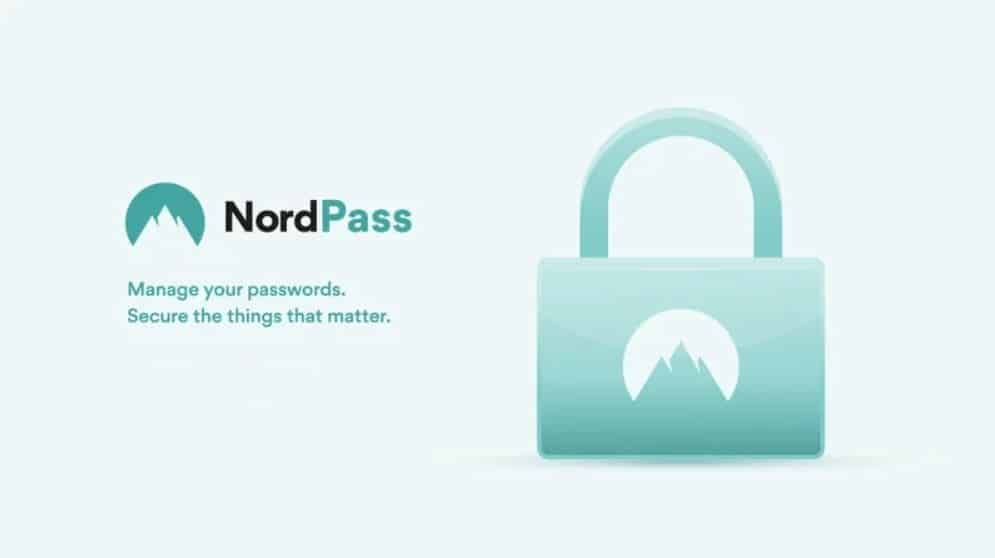
Password managers are available to help you manage all of your passwords.
However, even if you use a password manager, you should still back up your passwords in another location, perhaps a fire-proof safe.
If you want to use a password manager, I use, and recommend NordPass.
Password security is a critical component to your overall security online.
Because this is such an important layer in your security, I’ve dedicated an entire article to it, head over here and read all about it.
Use Encrypted Email
Encrypted email provides an additional layer of security when communicating about your crypto assets.
This is especially true if you are using a centralized cryptocurrency exchange or other crypto related platform.
Oftentimes, these platforms and exchanges are sending you sensitive information such as PIN numbers and verification codes. This is not the type of information you want falling into the hands of hackers.
Free email accounts, such as Gmail, often scan all of your emails.
I use, and recommend Protonmail as an encrypted email service.
Protonmail has free and paid options. Both provide the same protection with encrypting your emails, but the paid versions provide additional items such as a VPN and the ability to create multiple email addresses.
PRO TIP: Use multiple email addresses when you register with crypto platforms. This way if your information is compromised, a hacker doesn’t have the only email address you use.
If you are on the fence about using encrypted email, head here and give this a read.
Use a VPN
A VPN or Virtual Private Network is an additional layer of internet encryption.
A VPN allows you to create an end-to-end encrypted tunnel between you and whatever website you are accessing.
Think of a VPN like a tunnel that only you are allowed to drive through.
SECURITY TIP: Use a VPN on all of the devices that you use to access cryptocurrency.
An additional benefit to a VPN is that you can change your IP address and make it look like you are in a different location.
This feature may be beneficial if you are trying to access a crypto related service that is blocked because of the country you reside in.
There are free and paid VPNs.
In my experience with VPNs, you get what you pay for.
The two of the most important considerations when selecting a VPN are speed and leaks.
Some VPNs will adversely affect your browsing speed. This can be a detriment to you if you are trading crypto for example.
Leaks are just like they sound, basically, the private network you’re using is not completely secure.
When this happens some or all of your information gets leaked out of the VPN and becomes available to hackers. This is especially prevalent with free VPNs.
I use, and recommend Torguard VPN.
In my experience, Torguard allows me to maintain browsing speed while keeping my connection secure.
Torguard also gives you the ability to connect up to 8 devices simultaneously to provide you complete protection.
I’ve negotiated a deal with Torguard for followers of CryptoCoinMindSet. Use code CCM at checkout and enjoy a 50% discount on whatever Torguard package you choose.
No matter what VPN you decide to use, the need for them has never been more necessary. As a matter of fact, it’s so important I’ve devoted an entire article to this topic.
Don’t Use Public WiFi
It seems like no matter when you go these days everyone offers you a free wifi connection to use while you visit.
This is a great tool for these companies, by helping them to enhance their customer service. However, these wifi connections provide hackers an opportunity to steal your data.
The wifi connections themselves are not the problem.
Hackers will use this open wifi connection to lie in wait for an unsecured device to enter the wifi network. Once that happens they are able to steal information directly from this device without the owner’s knowledge.
The easiest way to avoid being a victim is to bypass public wifi altogether.
Use Two Factor Authentication
Two factor authentication or 2FA is a security layer that provides users with the ability to verify their identity online by a second method.
This method usually involves the connection of a 2FA provider, such as Google Authenticator or Authy to a website or platform.
Once connected, the authenticator app is installed on a phone or other mobile device controlled by the user.
Then, usually every 30 seconds, the app generates a new numerical password that is only known to the app and the website.
So, when a user logs into the website, and enters the numbers on the app, their identity is verified.
2FA Exploit
While this is a recommended additional layer of security, it is not without its own potential vulnerability.
If an authenticator app is located on your phone it may be susceptible to a SIM swap.
In short, a SIM swap is when a scammer contacts your cell phone provider and convinces them that they are you. The scammer then get’s the provider to swap your number to a SIM card controlled by the scammer.
Once this happens, the scammer controls access to everything on the phone, including the two factor authentication app.
Two factor authentication is available to users of most websites, especially those in the crypto space.
Use a Security Key
A security key takes the idea of 2FA to a new level.
Security keys are often referred to as multi-factor authentication and must be connected to a website or platform just like an authenticator app.
Though the security key functions much like 2FA, it differs in how it is used.
These security keys require the user to take their physical key and plug it into or scan it with the device being used. Once this is done, the user must touch the key to verify their identity.
I use, and recommend Yubikey.
Yubikey provides many different security keys to allow users to secure all types of online devices.
If using a security key is something new to you… it was to me… then be sure to learn more about them here.
Use Antivirus Software
Regardless of what you’re doing online, having antivirus software installed on your device is a must.
It is easy for a website to be infected with some kind of malware. This malware can then infect your phone or computer and ultimately send all of your personal information to hackers.
The best means of protecting your devices from this is by using good antivirus software. Most of the best software providers also include password protection and firewalls as part of their service to add additional protections.
I use, and recommend Webroot.
New security threats appear all the time, so having antivirus software continually scanning and protecting your devices is key to your overall security.
Keep Operating Systems Updated
Frankly, this is a step that anyone using an electronic device should complete whether or not cryptocurrency is involved.
Hackers are always trying to break into the operating systems of phones and computers.
When a hacker finds and exploits a vulnerability in a device’s operating system, the manufacturer creates patches to prevent any further intrusions. These patches are sent out to users in the form of system updates.
These days, most devices automatically update themselves. However, errors happen, and it’s possible an update is missed.
Getting in the habit of periodically checking your computer or phone to make sure there are no pending system updates is a good practice.
Secure Crypto In a Hardware Wallet
In short, cold storage is keeping the private keys to your cryptocurrency in an offline environment. This obviously helps to keep it safe from hackers and scammers.
Keeping your long term cryptocurrency investments in cold storage is currently the most secure storage option.
The best cold storage option is a hardware wallet. A hardware wallet can come in just about any size, and shape. Not to mention, how you access your hardware wallet can vary. Some are intrinsic devices that require no other means to access your keys, others require a connection to a computer or mobile device.
This device operates primarily the same as other wallets, with the exception that the storage of, and signing with your private keys, is done in an offline environment.
Some legacy hardware wallets that I have used during my crypto journey include the Ledger and Trezor. These wallets are considered OGs in the crypto space and have been, and continued to be, used by many throughout the space.
Personally, I no longer use these devices as my primary cold storage. As for why I’ve stopped using Trezor, the older I get, the less I like utilizing these smaller devices.
As for Ledger on the other hand, I would probably have stopped using it for the same reason, but, I actually stopped using, and recommending it, after Ledger introduced their “Recover” service.
Both Ledger and Trezor are USB style devices. Depending on the actual wallet you choose, they come equipped with various options including Bluetooth and DEX (decentralized exchange) interoperability.
Since my transition away from these hardware wallets, I have found a wallet that is simple to use, simple to set up, and frankly is so intuitive to use, I believe it will be a major player as the adoption of cryptocurrency increases.
I currently use, and recommend the Tangem hardware wallet.
Being constructed at the size of a standard credit card, the Tangem fits easily into any physical wallet or purse.
The set-up and utilization of the wallet requires your mobile device, with NFC capability (which comes standard in just about every smartphone these days).
Wallet set-up, even for the non-techie, takes no more than 5 minutes… and as hardware wallet set-ups go, I have personally found this process to be the easiest by far.
If you need a hardware wallet to store your private key, then I recommend Tangem. If you use the following link, you will get 10% off your purchase, so check Tangem out at their official website, and save 10% for doing so.
Buy Tangem Here
If you want to learn more about Tangem wallet, including updates and new features, check out my Tangem playlist here.
I recommend a hardware wallet as the best storage option no matter what cryptocurrency asset you decide to invest in.
Hardware wallets provide you the best self-custody option, especially for long term investors in the space.
As I’ve continually pointed out throughout this post, securing your crypto assets is of paramount importance. Take a moment to familiarize yourself more about that here.
Crypto Security Roundup
Enhancing your security practices is an important part of your cryptocurrency journey. Creating a layered security strategy is helpful to allow you to detect, deter and deny access to your cryptocurrency assets.
These layered security protocols include securing your private keys and passwords, bookmarking crypto websites, not using public wifi, keeping the operating systems on your devices updated, using a secure web browser, creating strong passwords, using encrypted email, using a VPN, using 2FA, using security keys, using antivirus software and using a hardware wallet.
Questions Related To Crypto Security
How do I recover stolen cryptocurrency?
Having your crypto assets stolen can be an enormous blow to your generational wealth. Discover If It’s Possible To Recover Stolen Cryptocurrency Here.
Disclaimer
The information provided here is for INFORMATIONAL & EDUCATIONAL PURPOSES ONLY!
View our complete disclaimer on our Disclaimer Page

